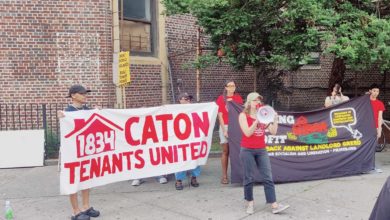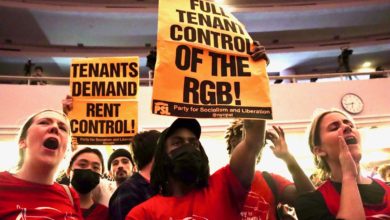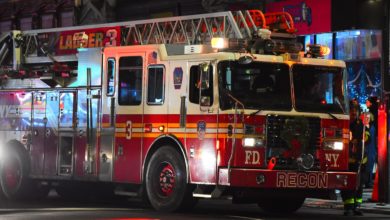Media outlets have begun to hail the end of the staggering unemployment and general economic malaise experienced since 2008.1 Nonetheless, there continue to be at least 11.6 million unemployed people in the United States. According to the Bureau of Labor Statistics’ latest report, the rate of unemployment has declined to 7.6 percent.
However, this does not say anything about the quality of the jobs that people have found. In fact, as the work force grows in size, the proportion of workers who can find only part-time work (less than 40 hours a week) has meteorically risen to 20.6 percent, cornering workers with unsteady employment and few or nonexistent benefits.
Workers’ real wages, essentially no higher than they were 30 years ago, only exacerbate the already wide disparity in wealth between workers and bosses, between the proletariat and the owning class.
Recovery slower in some areas than others
The disconnect between market recovery and human recovery is especially apparent and oppressive in context of the foreclosure crisis that still plagues Nevada. In fact, one in 71 housing units in Nevada was repossessed by a bank or received a notice of default or trustee sale over the last six months in one of the states most hard hit by the 2008 financial collapse.
While this figure is lower than its peak rate of over one in 50, it highlights the terrible injustice faced by those tens of thousands who are denied their basic right to shelter. It also illustrates the brutal illogic that produces this injustice to begin with: capitalist overproduction.
Logically, productive surplus should lead to abundance, eliminating the twin evils of hunger and homelessness. Under capitalism, however, overproduction, which characterized the housing boom of the last decade, leads profit-driven banks and other lenders to overextend mortgage and other forms of credit. This leads to rising interest rates that sooner or later make the growing debt load unsustainable. A result of the most recent overproduction crisis was that an unprecedented wave of foreclosures forced millions of working-class families out of their homes.
Human costs glossed over
Despite the shocking prevalence of foreclosures in Nevada and elsewhere, seldom will any major media outlet draw attention to the actual victims of foreclosure or allude to foreclosures’ human cost. More likely, the news echos realtors and bankers’ market-based optimism.
Though occasional statements describe the foreclosure crisis as “a thorn in the side of several state and local markets” or other vagaries, capitalist media ignores the profit system’s serial failures in guaranteeing basic necessities like food and shelter. The media prefers to skirt discussions of foreclosures altogether, focusing instead on comparatively-minor issues like sports and local landmarks.
In the halls of power
The suffering still lingering in Nevada is a testament to the complete inability or unwillingness of legislators and government protection programs to relieve human suffering in a meaningful way. In reality, it is both, as neither major party has, for example, placed a moratorium on foreclosures in spite of recent Democratic Party rhetoric condemning the irresponsibility and greed of the bankers and other lenders.
Policymakers’ inaction owes much to their disconnect with those who actually are at risk of foreclosure: not a single legislator in Carson City, Nev., Washington, D.C., or elsewhere in the country is at serious risk of losing their home. Instead, flush with influence, through former or ongoing financial or personal ties, from the same titans of industry and finance who plunged the globe into recession, U.S. politicians have much more in common with those who foreclose than the foreclosed.
People organize to defend their homes
Intent on remaining in their homes, communities across the country have organized themselves to defend against the onslaughts from Wall Street and Washington. Organizations like Occupy Our Homes and Take Back the Land encourage and help empower residents to resist foreclosure both within and beyond the laws skewed in banks’ favor. Through legal struggle against banks overstepping the already lax regulation on foreclosures to outright occupation in face of police action, these struggles have kept many in their homes.
To save their homes, people are having to fight against a government that is allegedly but not actually “of, by and for the people.” Democratic Party politicians chide bankers and CEOs for creating the crisis but then turn around and hand those same bankers and CEOs billions of taxpayers’ dollars, supposedly aimed at solving the same crisis.
We should not be afraid to organize ourselves in defense against our united enemy: the landlords, CEOs, and their allies in government. We need a moratorium on foreclosures and a political and economic system that provides according to real human, not profit, needs and which guards human rights, dignity and equality.





